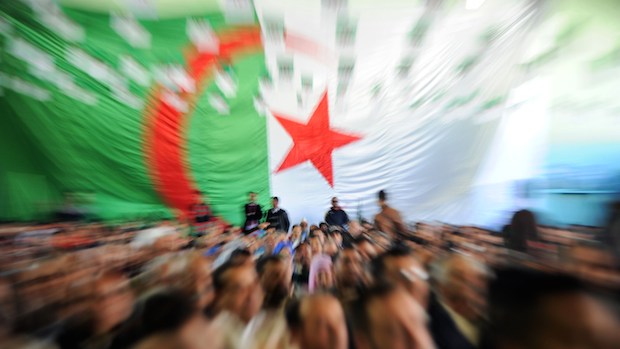Anybody who has seen Algerians celebrating a national triumph, whether it be the anniversary of their military victory over French colonizers or a simple international sporting success, will be left in no doubt about their patriotism. This is as true for the inhabitants of Algiers and Oran as it is for the huge Algerian diaspora in foreign cities such as Paris.
The People’s Democratic Republic of Algeria is a relatively young country—it came into being following the end of the war of independence from France in 1962—but few would associate it with ethnic and sectarian tensions. The immense challenges in building a free post-colonial nation require an exceptional sense of unity, and successive generations have certainly forged one in the largest country in Africa.
In contrast, near neighbors, including Libya next door, are currently riven by tribal divisions. Middle Eastern countries such as Syria, Iraq and Lebanon have borders that were drawn up arbitrarily by victorious Western powers after World War I according to the Sykes–Picot Agreement, and this has also directly led to ethnic hatred and killing.
The vast majority of Algerians make up a homogeneous population. Some 85 percent are Arabs, all a part of a culture and history that stretches right across the Middle East and North Africa region. While many Algerians are of Berber origin, only an estimated 15 percent identify themselves as Berbers today. These can be divided into the Kabyles and the Shawiya, along with smaller groups including the Mzab and the Tuaregs.
Many Berbers maintain their own language and sense of ethnic identity—one that was openly insulted last March when Abdelmalek Sellal, the former prime minister and now a senior aide to President Abdelaziz Bouteflika, made a crude joke about the Shawiya. Caught on live television, his comment effectively portrayed them as an underclass and infuriated entire Berber communities.
Such a sense of injustice has sparked ethnic rebellions in the past, mainly involving the Kabyles and the Shawiya, especially during French colonial rule between 1830 and 1962. In the post-independence era Kabyles have resisted “Arabization” and centralizing policies, with militants complaining of “cultural imperialism” emanating from the capital. Protests have led to arrests and violence, including a turbulent Berber Spring in 1980, when hundreds of students and intellectuals were temporarily imprisoned, precipitating a general strike by Kabyle workers. There was also a Black Spring in 2001, when mass Kabyle demonstrations saw 126 killed and hundreds more severely injured by paramilitary police.
Trouble during the Arab Spring revolutions of 2011 was far more isolated, with some Berbers using pro-democracy demonstrations to call for a better deal for their own people. But their protests were nothing near as intense as they were in earlier periods of history.
Following the horrors of the civil war in the 1990s, and indeed the colonial experience, Algeria has succeeded in creating a strong national identity through one language, Arabic, and one religion, Islam—but concessions have been made to the Kabyles since the dark days of the 1980s and early 2000s. The Berber language of Tamazight is now an official one in the Algerian constitution and frequently used in the media, and Kabyle police are largely recruited from the areas where they were born and brought up. Grants for Kabylie have also increased significantly in the push towards a greater regional identity. Resentment persists, but as a threat to national cohesion, ethnic tensions can currently be considered a minor problem—one that is dwarfed by far more pressing national security issues, not least of all terrorism.
The counterpoint to this article can be read here.
